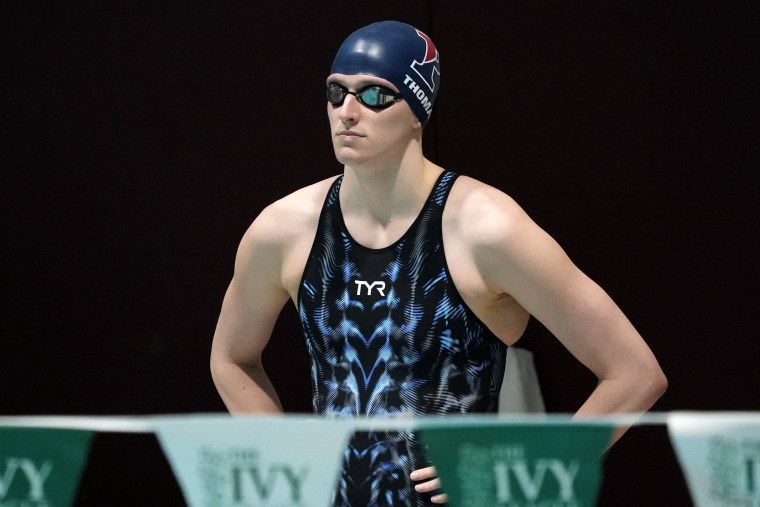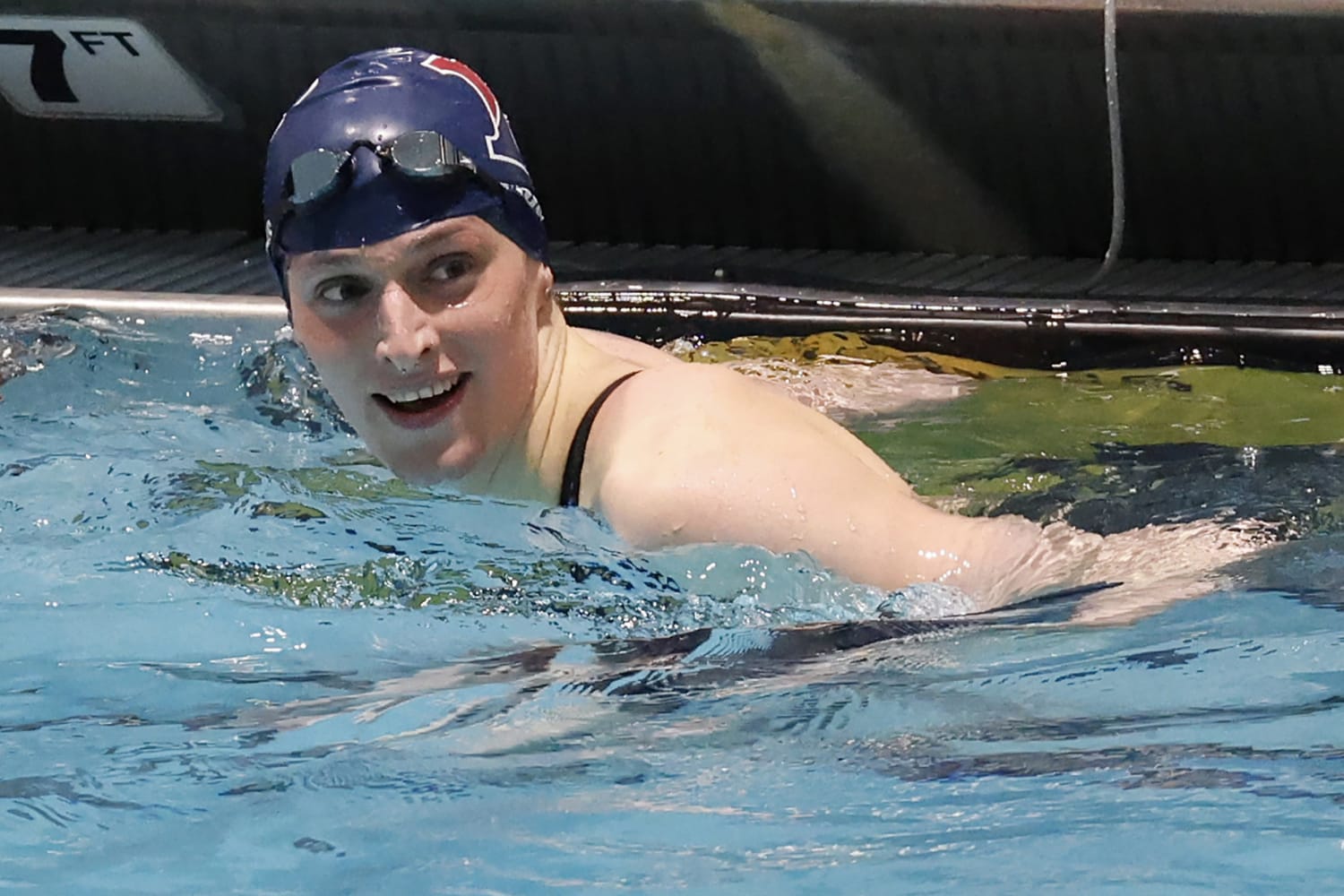University of Pennsylvania swimmer Lia Thomas, who has been at the center of the heated national debate over transgender athletes’ inclusion in school sports, won all three of her individual races and a team relay at last week’s Ivy League championships at Harvard University, setting the stage for her appearance at next month’s NCAA finals.

Thomas, 22, came in first in the 500-, 200- and 100-yard freestyle races, setting pool and Ivy League records. She narrowly beat transgender male swimmer Iszac Henig in Saturday’s 100-yard women’s contest and was ultimately the highest-scoring swimmer at the meet, according to the website Outsports. Thomas’ next stop is the NCAA Division I swimming and diving championships, which take place from March 16-19 in Atlanta.
Thomas, who competed on the Penn men’s swim team for three years, joined the women’s team in November for the 2021-22 season. She started gender-affirming hormones in 2019, she revealed in a December interview on the SwimSwam podcast. NCAA rules require one year of testosterone suppression treatment for transgender female athletes.
The NCAA announced earlier this month that it had rejected USA Swimming’s stricter new policy requiring trans female athletes to have low testosterone for 36 months, the longest of any sports governing body in the world.
Thomas’ teammates appear to be split on her participation on the Penn women’s swimming and diving team. On Feb. 1, an unknown number of Thomas’ 40 teammates released a statement in “full support” of her. A few days later, however, 16 of her teammates sent a letter to the university and the Ivy League arguing that they have “lost competitive opportunities” as a result of Thomas’ participation. Both letters were unsigned, and to date, her teammates have only spoken out anonymously.
Schuyler Bailar, a former Harvard athlete and the first openly transgender Division I swimmer, told The Associated Press that he was proud to see both Thomas and Henig at the Ivy League championships.
“When I was competing, I was the only openly trans person as far as I knew in NCAA swimming … It felt very lonely at times,” he said. “To come in and to watch Lia and Iszac, both transgender swimmers in the Ivy League and in my home pool, has been really powerful.”
Source: | This article originally belongs to Nbcnews.com










